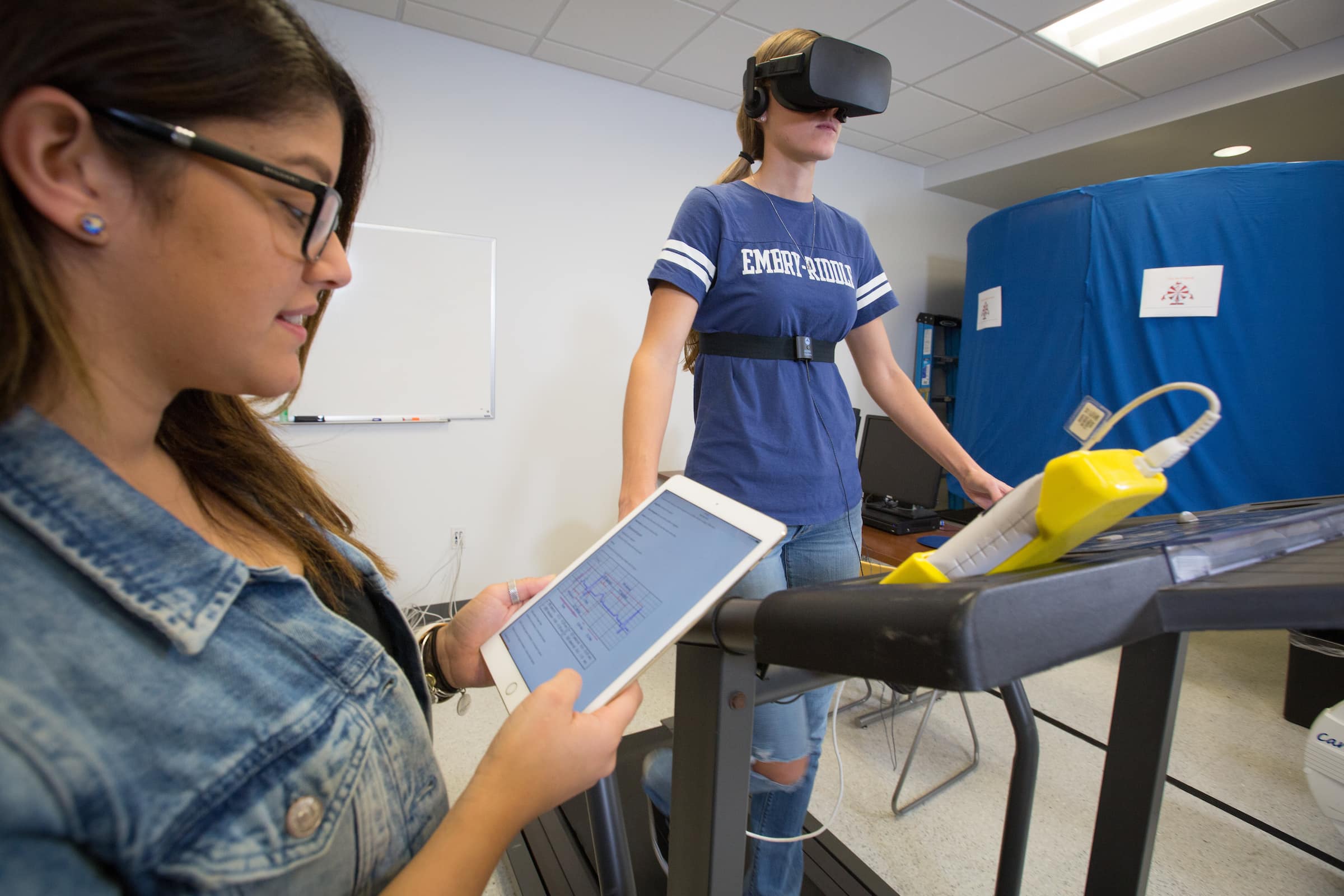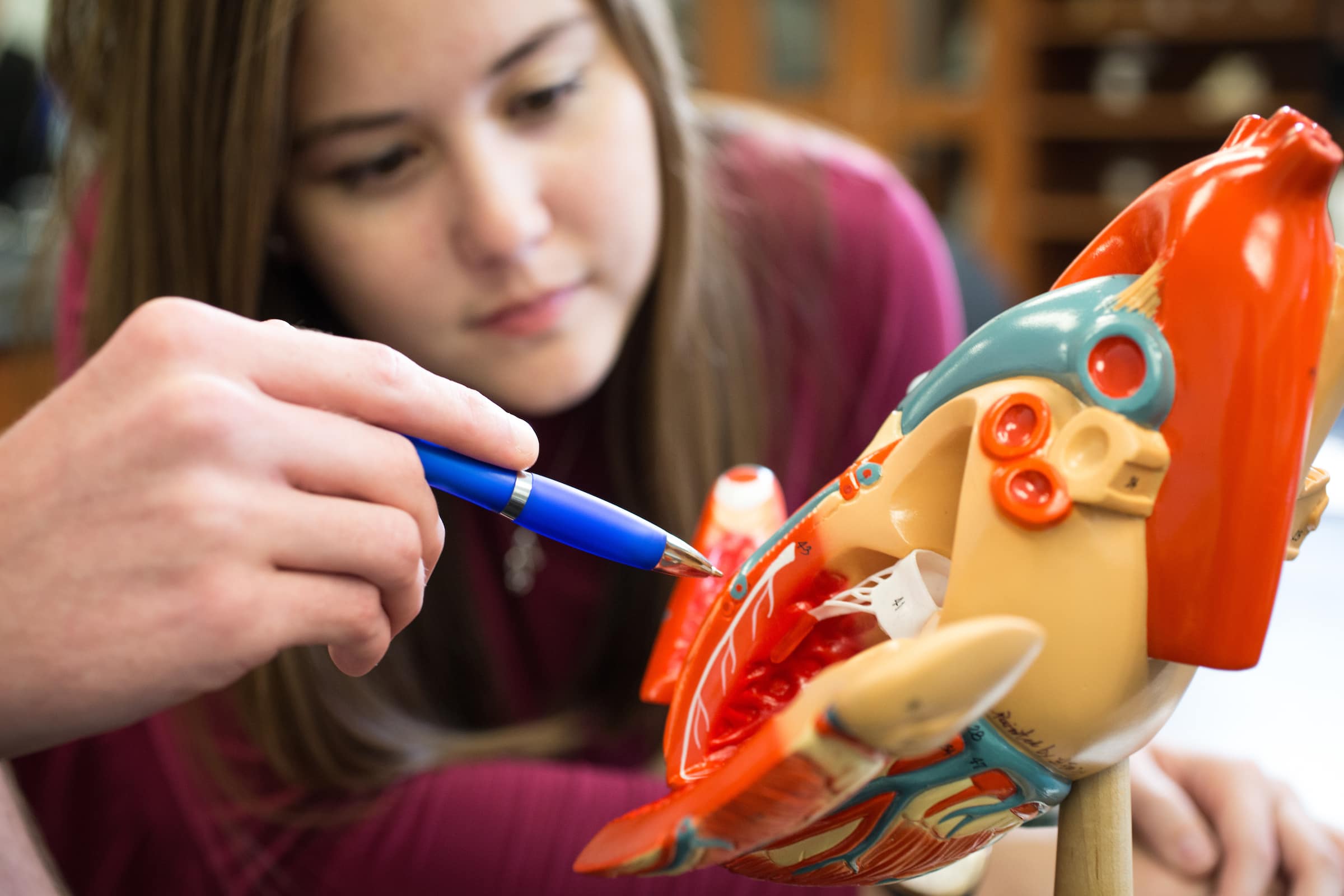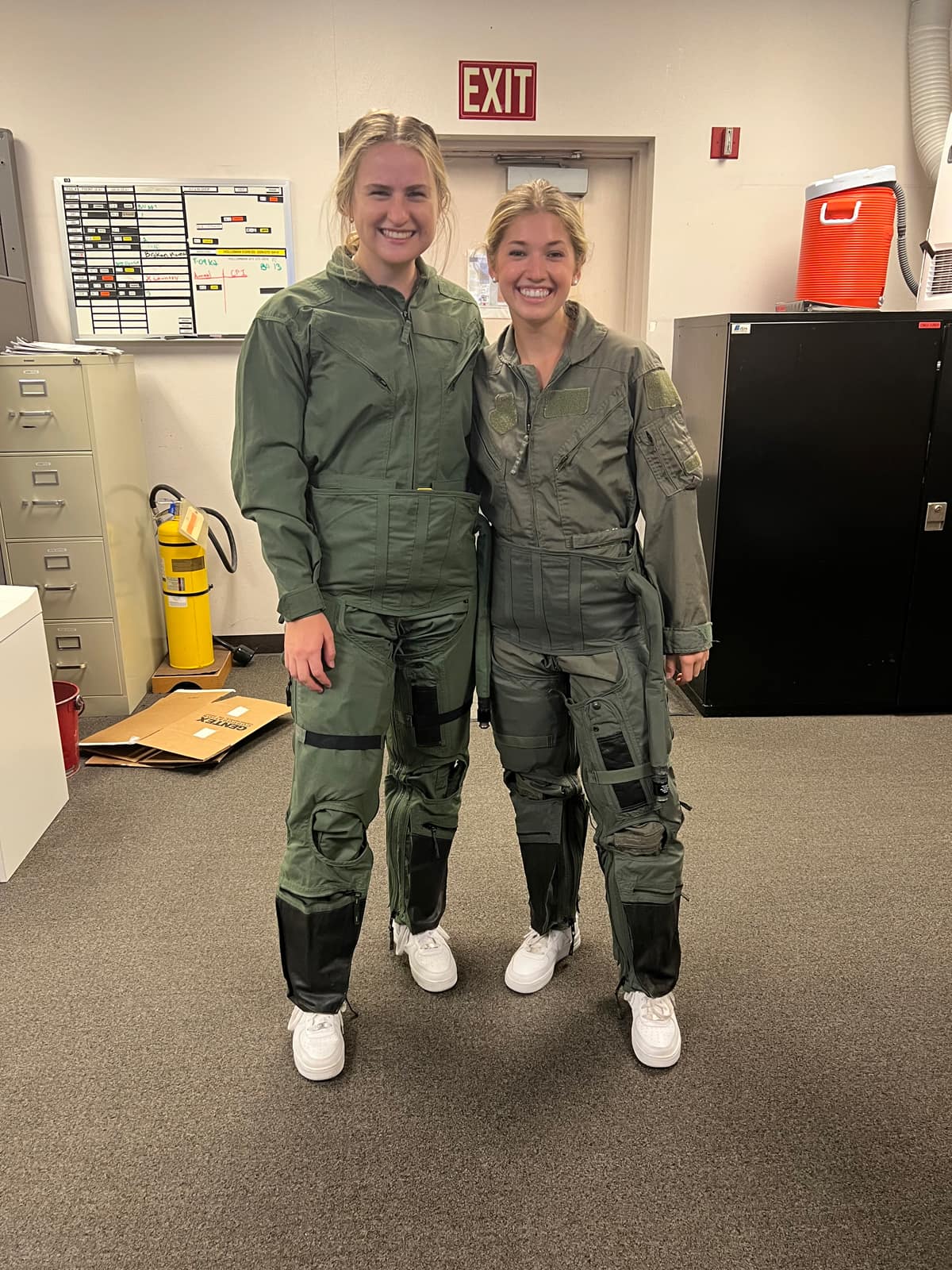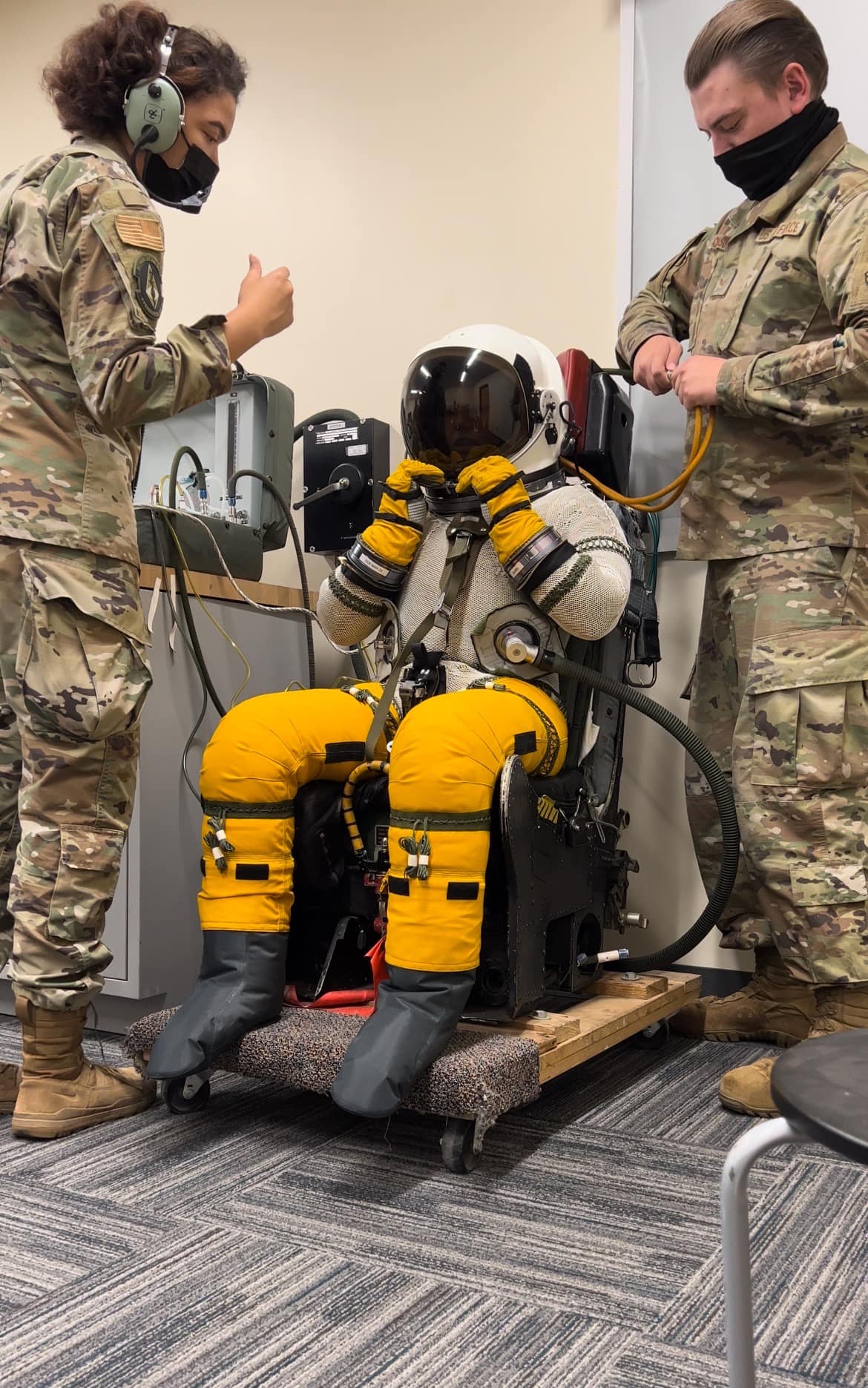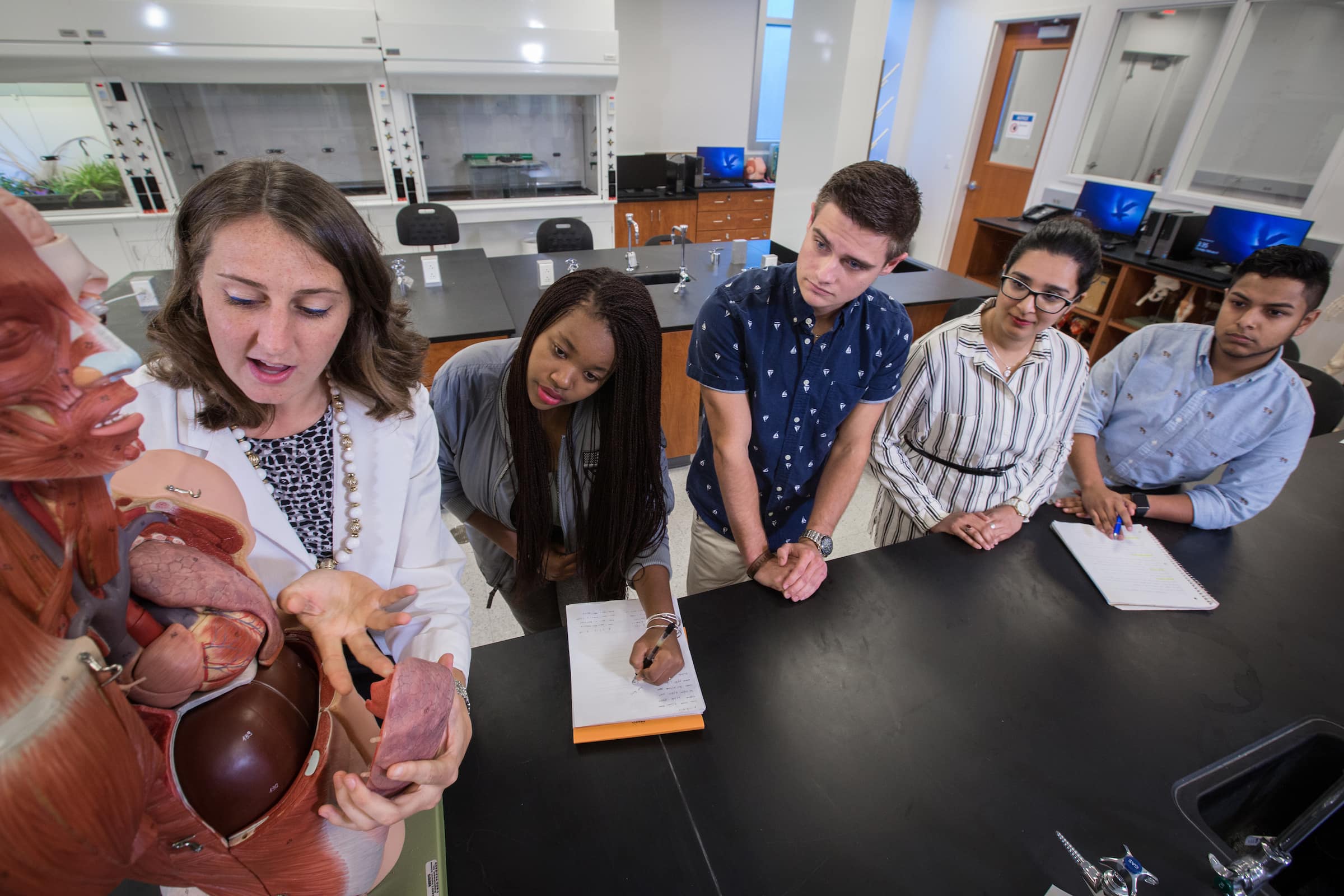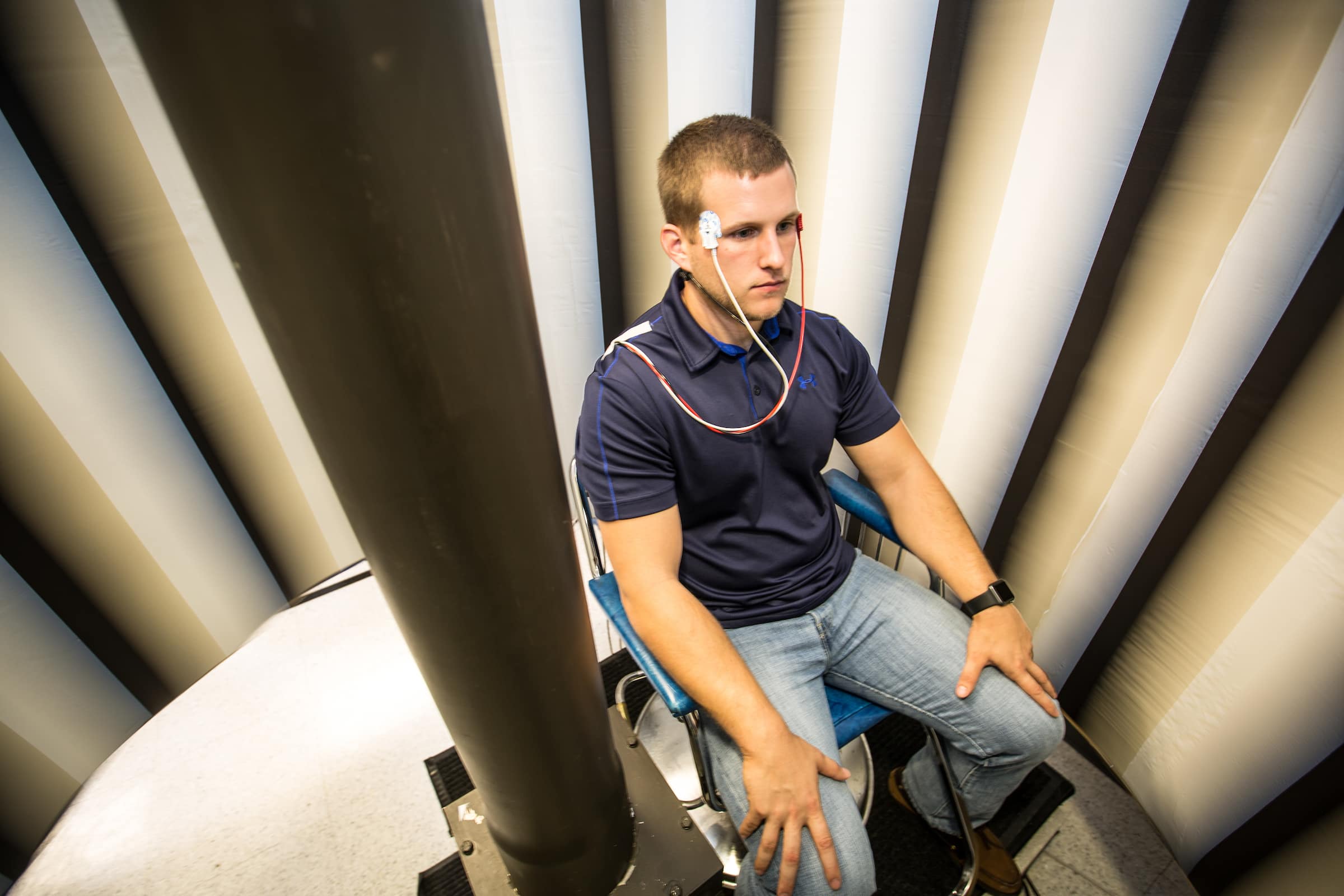The Aerospace Physiology lab is equipped to study astronaut physiological issues such as hypoxia, vestibular function (orientation, forces of flight, nausea, balance) muscle and bone loss, sleep quality and snoring as well as the cognitive effects of flight. We have a high fidelity research helicopter simulator that can be outfitted to be a manually controlled space craft as well as several desktop flight simulators to show and record instrument panel manipulations and outside panoramas.
These allow students to participate in research projects that challenge general astronauts and general aviation pilots, such as tactile flight cueing.
The lab supports many student research and classroom projects in Aerospace Physiology, Extreme Environments, Biopsychology and Sensation & Perception. The lab also serves faculty who have funding or an interest in space or aviation human factors. The lab works closely with the College of Aviation to conduct real world flight research.
Equipment
- Bell Ranger Helicopter (space craft) simulator
- Virtual Reality based X Plane laptop simulator
- Vibro-tactile (Haptic) cueing belts and seats.
- Hypoxia
- Spatial disorientation and measurement devices
- Sleep quality motion watches and anti-snoring belts
- Cycle ergometers and treadmills
- Ambulatory and static electrophysiological recording equipment
Lab Information
Location: COAS 401.24
Lab Director: Dr. Jon French
Contact Us: To speak to someone about this lab or any of our facilities, call us at 386-226-6100 or 800-862-2416, or email DaytonaBeach@erau.edu.

